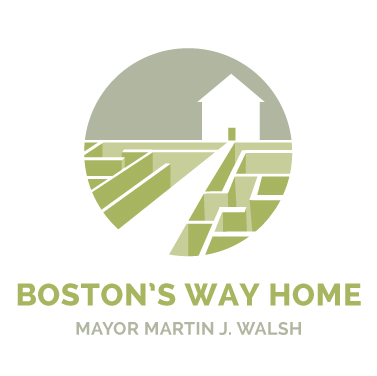Creating innovative software for Boston’s Way Home
Boston needed a better, more efficient way to match homeless individuals with the housing and support they need. Our partner, Green River, helped us find the answer.
Green River's mission is to leverage technology for social good. When Boston issued an RFP for a Coordinated Access System to House Boston’s Most Vulnerable Homeless Individuals, it immediately caught our eye – a request for technology to find housing opportunities for all chronically homelessness individuals. Boston wasn't just asking for a system to meet Federal requirements. They were genuinely committed to solving a social problem, and determined to build the tools needed to accomplish this. This was a project the whole Green River team could get behind.
A few years ago, Mayor Walsh assembled a very capable task force and charged them with developing a plan for Boston to end chronic homelessness. Beginning their work, the task force observed that “Boston’s current response to homelessness is a collection of effective, yet fragmented, programs that offer a variety of services to individuals experiencing homelessness.” To resolve that fragmentation, the task force presented an ambitious software challenge: “To shift from a group of independent programs to one single integrated system” built around the needs of every homeless person.
Boston didn’t look for a vendor to sell them software. They wanted a technology partner to expand work already under way by committed staff in the Department of Neighborhood Development (DND), and at non-profit service providers across the city. They wanted software that put the needs of the homeless first. And they wanted a solution that wouldn’t replace or disrupt existing information systems that already functioned.
Mayor Walsh’s commitment to ending homelessness, and to leveraging modern technology to better serve the citizens of Boston, requires changing how government bureaucracies traditionally procure software. For example, systems need to be designed flexibly, using an agile process that is cyclic, iterative, and responsive to the needs of its users. As developers, we write the least code possible, put software in production quickly, observe people using it, and make iterative improvements. Not rocket science, but this shift from the single track methodology of design-build-launch-complain to an ‘agile’ approach has been transformative for the software industry. In our experience, government is often unwilling to work this way. Boston, however, embraced our agile processes, and ensured we had every opportunity to succeed. Just as innovative, the city worked with us to release the system into the "open source.” This means the underlying application code will always be free for any community to adopt, and ensures any enhancements made by other communities will in turn benefit Boston.
(Interested in the technical details? See https://github.com/greenriver/boston-cas for the code, and open an issue there, or contact a maintainer, if you have any questions.)
So, what’s unique about a software tool that aligns individuals enduring homelessness with available housing? For one, the CAS is special just for being software. The Federal agency HUD doesn’t require the coordination of access, assessment, and referral to be managed electronically, though they do require steps to be standardized. Boston realized that technology can have a truly positive role in social service, and was bold enough to make it happen.
Secondly, the CAS is special in that it supports equity, advocacy, and efficiency within the delicate process of choosing how all the power of coordinated services should be prioritized when a scarce housing opportunity becomes available. No individual is overlooked, and an optimal match can be suggested regardless of which shelter agency, city department, our other service provider happens to be on the case.
Green River is honored to help Boston end chronic homelessness using our new open source platform!
For more information on the City's efforts to end chronic and veteran homelessness, please visit Boston's Way Home on the City's new website, and follow the initiative on Twitter at @BostonsWayHome.


